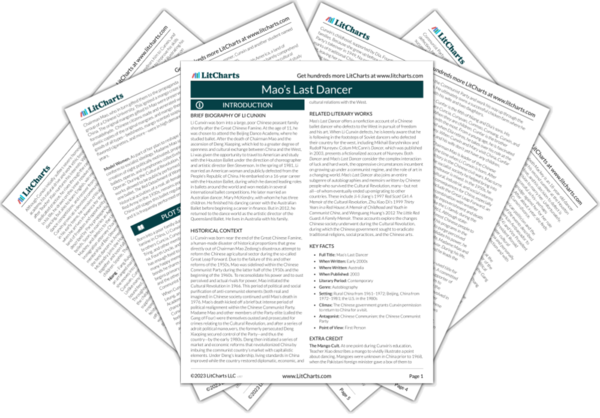1983 contains two turning points in Cunxin’s life. First, he encounters Mary McKendry for a second time. He feels an inexplicable attraction to her dancing, and the fact that their paths keep crossing suggest that she will play an important role in his life, although readers—like Cunxin—will have to wait to discover what that is. Second, the conversation with Margot Fonteyn crystalizes and confirms what Cunxin has gradually been realizing over the months since his defection: his family could make up for poverty, but his American wealth cannot replace his family. And because he has previously shown a knack for overcoming the obstacles in his way, naming his unhappiness is the first step toward remedying it.


